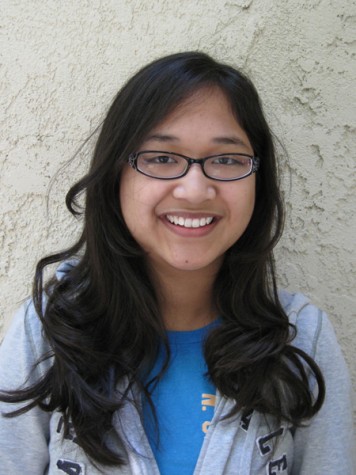Imagine working full-time, caring for your children and being a full-time student.
Imagine that even with all these responsibilities, it’s possible to graduate with general education requirements necessary to transfer to a four-year college or university and earn an associate’s degree within four to five semesters.
The Project for Adult College Education, better known as PACE, allows students to do just that.
PACE Director Bob Taylor said that a typical evening student who works toward an associate’s degree or transfer by taking from three to six units per semester may be going to school for a minimum of four to five years. Students enrolled in PACE, however, may complete this same goal in less time.
“It offers a viable alternative to the evening student, to the working adult,” Taylor said of the program.
The program, designed for working adults, allows those enrolled to complete an associate’s degree and general education transfer requirements to Cal States and private universities within a reasonable time frame. PACE students may also opt to transfer to UCs, though it is not a viable option for working adults.
According to Taylor, most UC classes run from 7 a.m. to 2 p.m. He said that unless working adults are willing to yield their jobs for their studies, there are virtually no undergraduate evening programs offered at UCs. Cal States and private universities on the other hand, offer complete evening programs.
Students enrolled in the program attend classes one evening per week and every other Saturday throughout the full semesters. They take four classes each semester, generally by completing two classes per eight weeks, and are able to complete 12 units per semester. Week night classes run from 5:45 p.m. to 8:12 p.m. and from 8:20 p.m. to 10:47 p.m., while Saturday classes run from 8:30 a.m. to 12:30 p.m. and from 1:30 p.m. to 4:30 p.m.
While PACE is designed for working adults, it is open to all students, regardless of age, who may only be able to attend classes in the evenings.
The program currently offers degrees in liberal arts and business to students.
Though the concept of completing 12 units per semester by devoting a weeknight and every other Saturday may sound nice on paper, the curriculum is not necessarily easy.
“I tell people . ‘this is not easy, but it’s doable if you apply yourself,'” Taylor said.
Cyndee Whitney, head of organization development and training for the city of Pasadena, participated in the program from 1998 to 2000. Since graduating, she has earned a bachelor’s degree, two master’s degrees and a doctorate in human and organizational systems.
Whitney worked full time and traveled for her job while she was enrolled in PACE. With all her responsibilities, it was not always easy for her to keep up with the program.
“One night, it was 10, it was freezing cold, it was raining, I was walking up heart attack hill [to the upper parking lot] with a big giant book bag and an umbrella that turned inside-out in the wind,” she said. “I was frozen to the bone, and I just screamed out, ‘what the hell am I doing this for?’
“I drove home, and that night, I [watched a video for] our economics class [which was] about the Great Depression. And when I turned it on I saw my grandmother’s time, and I learned about what her life was like . and I thought, ‘that’s why I’m in this program, because I didn’t know this before.'”
Whitney enthusiastically recommended the program to working adults and to those with time constraints.
Because the program allows students to reach their academic goals within a reasonable time frame, it has become popular at GCC, with 400 students currently enrolled.
Taylor noted that one of the strengths of PACE is that students move through classes together as a group.
“They’re together for four or five semesters. So they can kind of form study groups, and they can kind of have like an external family,” he said. “Most of the students at Glendale College . take a class for 18 weeks, but chances are after that semester’s over, unless you see them on campus, you’re probably not going to take another class with them.”
He found that students that move through classes together “really increases graduation probability and expectations because students kind of feel that they have an identity, and they want to continue with their peers and graduate.”
Whitney said that the family she formed with her PACE peers affected her positively.
“You move through something difficult together; it’s a support system that you have,” she said. “This is your unique family because these people know what you’re going through.”
Instructor Libby Curiel, who taught a Speech 100 section in PACE in October, said that students in the program were unique.
“The one thing I can say about all of them is that they really were very engaging,” she said. “They’re there, they’re focused, they’re really interested, they want to learn, they’re self-motivated.”
Although Curiel had to devote weekend nights and Saturdays to teaching PACE students, she was positive about the whole experience.
“Teaching at nights and on the weekends for me is so rough, because . I’m a single mom,” she said. “It was a commitment for me, but . I made it, and I’m glad that I did. It was a great experience.”
Curiel also remains in touch with her students.
“They’re my friends on Facebook now that their grades are in,” she said.
PACE was originally started in Detroit, Mich. as a program for auto workers. It came to Southern California in the early ’90s, and was introduced at Glendale College in 1998 by former Vice President of Instructional Services Chris McCarthy, who passed away this September.
For more information, call (818) 240-1000, ext. 5153.

